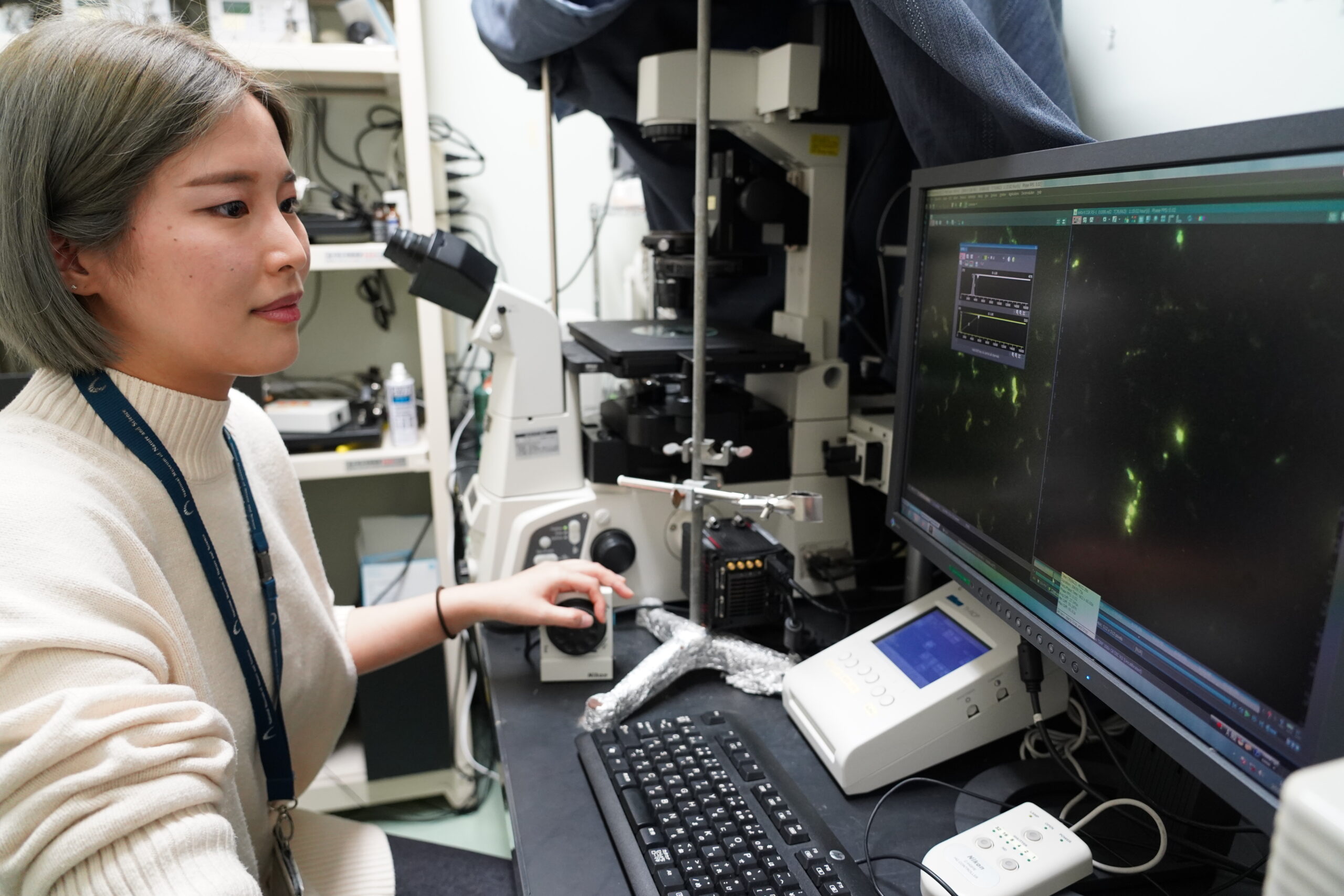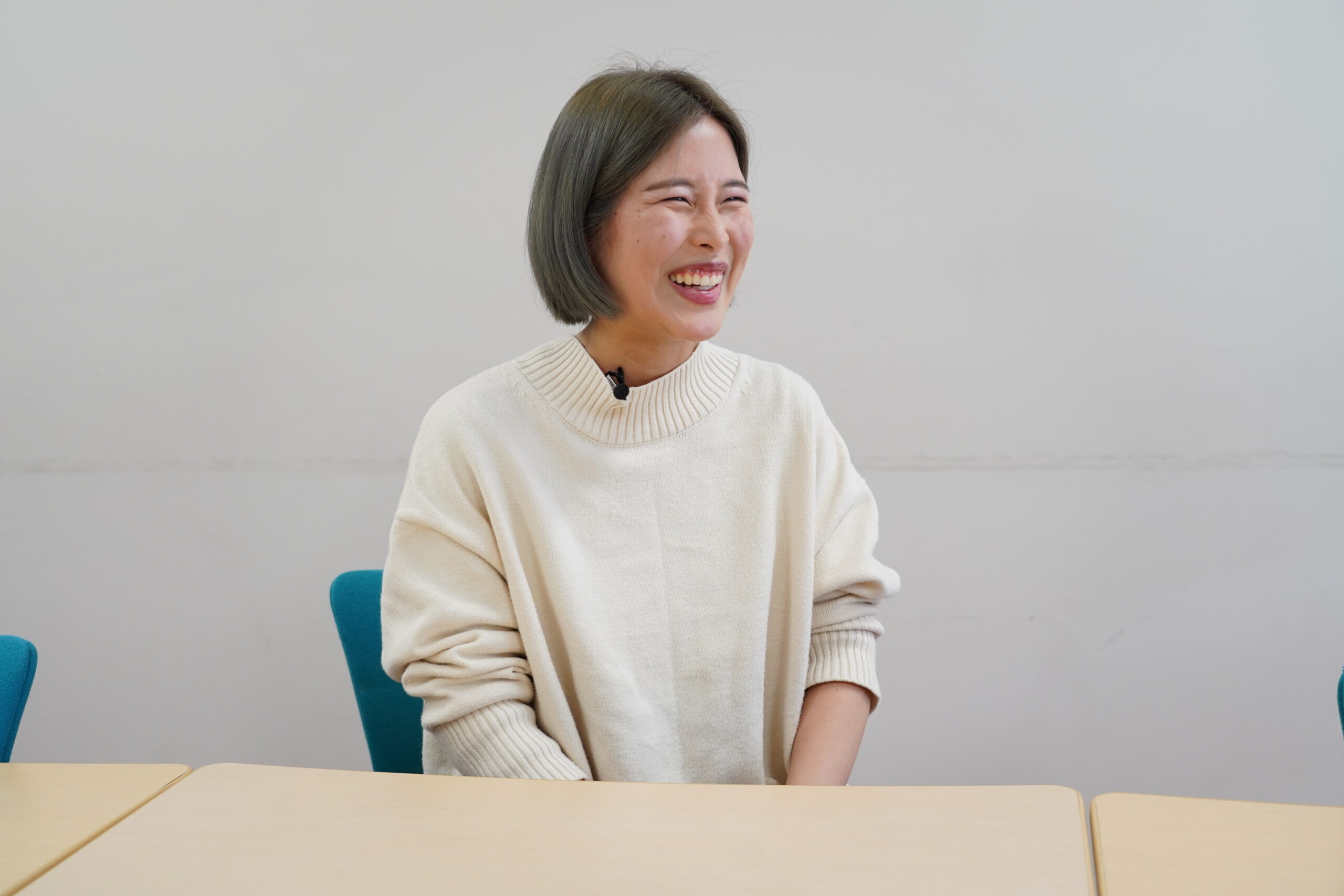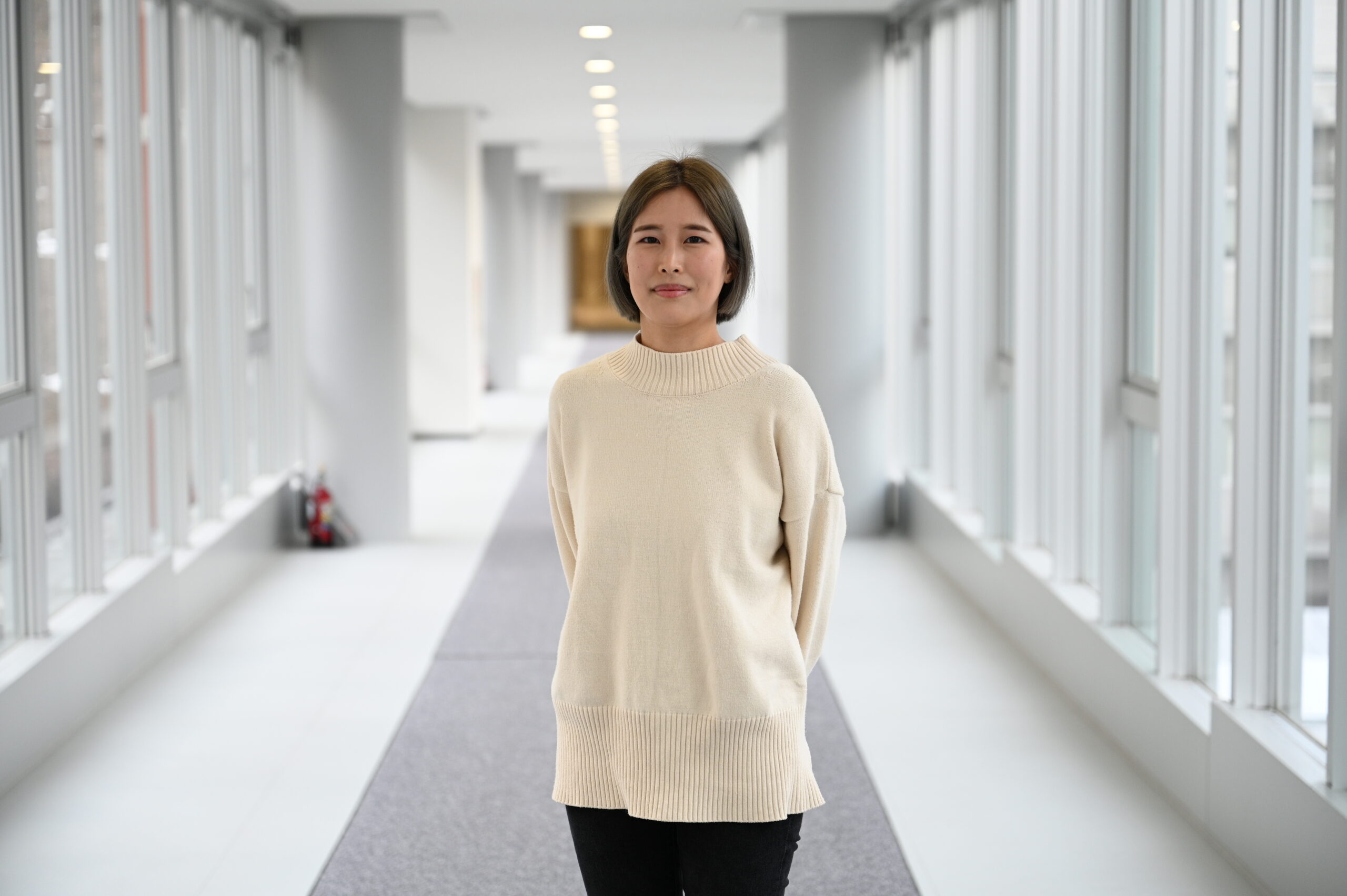We interviewed Rino Shimoshige, a second-year doctoral student (at the time of the interview) in Division of Natural System, Graduate School of Natural Science and Technology. As a HaKaSe +selected doctoral student, she is actively earning the doctor's degree. We interviewed her about the allure and value of the doctoral course and the worthiness of her study.
Firstly, what was the inspiration behind your decision to go on to the doctoral course?
I first became aware of the idea of earning a doctor’s degree when I was in high school. I had the opportunity to talk with a person who had obtained PhD and was working as a researcher in industry. This experience allowed me to consider a career as a researcher in the future. I got my bachelor's and master’s degrees, I gave up on pursuing a doctoral course due to financial reasons and started job hunting before graduating from my master’s course. However, when I attended an in-person academic conference for the first time, I saw graduate students and researchers discussing studies with passion. At the moment, I thought "I want to be like them in the future!” and reignited my desire to continue with research. At the same time, I was concerned about the financial challenges of pursuing a doctorate. That’s when I learned about “Kanazawa University Strategic Project for Doctoral Students and Research Promotion (HaKaSe+)". After discovering its generous scholarships and support system, I felt that this was my chance and decided to go on the doctoral course.
What kind of support does HaKaSe+provide?
First and foremost, HaKaSe+ offers financial support in the form of a generous scholarship, which allows me to focus entirely on my study. There is also funding available for attending international conferences held overseas. Thanks to this support, I was able to present at an international conference held in Spain in 2024. I even won a poster award at the conference, which gave me confidence as a researcher. HaKaSe+also provides opportunities to interact with other doctoral students working in other fields. Discussions with students from diverse disciplines—both from Japan and abroad—have helped me reflect on the importance and challenges of my research from multiple perspectives.

Could you tell us about your study?
I am studying the functions and characteristics of novel actin-like proteins found in magnetotactic bacteria. Magnetotactic bacteria inhabit diverse aquatic environments, such as rivers, lakes, and marine sediments, and detect the Earth's magnetic field by aligning magnetite crystals enclosed in magnetosomes along the cell's long axis in a chain-like structure. By utilizing the tilt of the Earth's magnetic field to fix their swimming direction, they adapt to changes in oxygen concentration gradients, which constantly fluctuate, and remain in an optimal microaerobic environment. Magnetotactic bacteria possess magnetosomes, which are nanoscale organelles, but the mechanisms underlying their biosynthesis and the organization of magnetosomes within cells remain largely unknown.
I am focusing on proteins involved in the characteristic magnetosome organization, which are essential for the life activities of magnetotactic bacteria. Using techniques such as immunocytochemistry and live-cell imaging, I am studying the functions and characteristics of their proteins. Through this study, I aim to deepen our understanding of the diversity and functions of cytoskeletal proteins in bacteria, which govern various life activities, and thereby shed light on the role of the cytoskeleton in early life and the truth behind its evolution. There are still many unknowns in this field, and what makes this research exciting is the possibility of uncovering discoveries that have never been made before—through daily experiments and exploration.
What skills do you feel you’ve gained through your research activities so far?
First, I improved language skills and communication skills. Presentation in English was a big challenge for me at an academic confarence. I have been attending “Funglish,” an English conversation group held at Kanazawa University, since I was a bachelor’s student and worked hard to strengthen my English skills. At a conference in the U.S. in 2023, I struggled to keep up with the fast-paced discussions and even began to worry whether I could pursue my dream of conducting research abroad. I couldn’t explain my research well at that conference, which was frustrating—but it motivated me to improve. ??In 2024 with support from HaKaSe+, I participated in an international conference in Spain. I was able to communicate with other participants in English and even won a poster award. That experience gave me a huge boost in confidence.
I’ve gained another skill, perseverance. Research is full of challenges and setbacks. I’ve had to revise my research theme and plans many times. But I believe that anyone who chooses to become a researcher will eventually face obstacles. I remind myself that “this is just part of the journey”, and I keep moving forward. HaKaSe+ also provides opportunities to connect with other doctoral students in similar situations, both in Japan and abroad. These interactions have been a great source of support. Being able to continue despite difficulties has become a real source of confidence for me.

Finally, could you share your dreams for the future?
In the future, I hope to continue researching magnetotactic bacteria as a scientist at a university or research institute. My goal is to become a researcher who can contribute on a global scale.
Research doesn’t always go smoothly, but the harder the challenge, the greater the joy when I obtain good data—and that’s when I feel the most excitement. The bacteria I study are invisible to the eyes. When I follow the protocols and watch the expected results under the microscope, it’s incredibly rewarding. What’s even more exciting is when I watch unexpected results. That’s when my imagination takes off, and I start exploring new possibilities. In Japan, only a few laboratories are studying magnetotactic bacteria, so I hope to make discoveries as a researcher active on the international stage one day.

*Note: All affiliations, academic years, and titles mentioned are accurate as of the time of the interview.
(Yuko MITERA, Science Writer)







 PAGE TOP
PAGE TOP